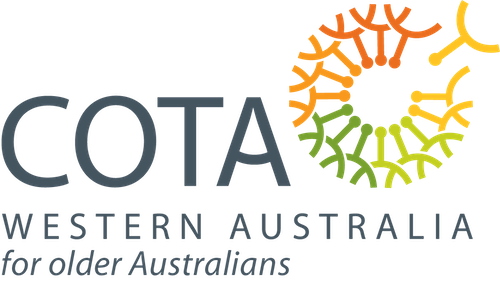Three-quarters of older West Australians encounter difficulties trying to access information and communicate with organisations and government agencies, and the majority of people want to receive important information by email, new research undertaken by COTA WA has found.
COTA WA – the leading advocacy organisation for older Western Australians – conducted its largest-ever survey of older people in order to better understand the communications preferences of older Australians.
CEO of COTA WA Mark Kinsela said the findings of the research show the way many government agencies and businesses communicate doesn’t always reflect the needs of many older West Australians.
“Almost everyone has experienced difficulties in communicating with government organisations and large corporations, especially with the surge in growth of web-based applications. This problem is especially prevalent among older people (people aged 50 +),” Mr Kinsela said.
“Businesses and government aren’t listening to what seniors are saying. We hear from so many older West Australians that they feel unheard”.
“One key and striking finding from the research is that older people don’t want more websites! It seems a common solution from consultants and bureaucrats is to create another website to ‘communicate’ with the masses. This is not good enough. Older people want to be engaged in a conversation, not given a website link, and told to find the information themselves.
Mr Kinsela said just one recent example is the move to cashless parking meters across Perth.
“While there may be a good reason, many older people have told us the first they heard about the changes were when they were parking for a doctor’s appointment or trying to get out into the community. There is a great City of Perth Website, but the reality is many older people missed their appointments or turned around and went home because they could not use the new machines.
Mr Kinsela said COTA WA hopes that this new research will help government and businesses to better understand the communication preferences of older West Australians, so they can be consulted and heard.
Some key findings of this research include:
- Older adults are good adopters of technology, but make more use of computers and tablets than younger people who prefer smartphones.
- There is a marked decrease in the use of smartphones as people age with a corresponding increase in the use of email.
- Email is the preferred tool to receive information – however, it must be targeted, as many feel they are being spammed with information not relevant to them.
- The main barriers to effective communication with older people are the rapid changes in technology and the complexities involved in user interfaces.
- Being able to pick up the phone if self-help is failing is still a strong preference – but extended waiting times in trying to call organisations also featured as a major obstacle to communication with organisations.
74% of the respondents said that they encounter difficulties trying to access information and in communicating to organisations and government agencies. Among all of the factors mentioned by respondents in barriers in communicating, lack of clarity, or confusion in user interface websites were the highest, according to 39% of respondents. Some comments included:
“Websites appear to be designed for people who are expected to be tech savvy.”
“No email addresses and won’t answer their phone. Get put on hold for sometimes more than an hour.”
“Remember we are very slow using keyboards due to arthritis etc. so do not time our communication. We also like to print out copies to remember information and check up details which we often lose on our computers and the need for passwords which are hard to remember. We are also very aware of scams and reluctant to try new things in case we get scammed.”
Mr Kinsela said many seniors are willing to learn how to use technologies, recognising the benefits of staying connected and accessing digital services. However, the reality of user-friendly systems often hinders their progress.
What can organisations do to make two-way communication more effective?
Mr Kinsela said there are several strategies organisations can use to enhance their communication with older people and to make it easier for older people to communicate with them. Some of these include:
- Use email rather than texts except in certain cases such as emergency situations and emergency warnings, and community service advice
- Hard copy is the second most preferred communication strategy
- Simplify your websites and the accessibility of information
- Reduce waiting times for phone information
- Avoid using geographically distant call centres
“Our research seeks to identify the most effective communication channels and methods that align with the needs and preferences of senior citizens in WA. Ultimately, the goal is to foster more inclusive, accessible and effective communication strategies that bridge gaps.”
Further information
Need more information? Contact us by phone or via email!
For more information go to:
Web: www.cotawa.org.au
Email: markkinsela@cotawa.org.au
Phone: 0407 796 990
Download this media release in PDF format.
Download the summary of the research findings
Download the detailed version of the research findings
